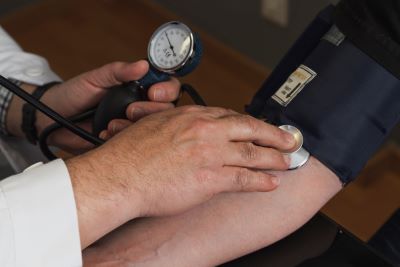How Long Does Blood Pressure Medicine Take To Work
Introduction to Blood Pressure Medication
When individuals are diagnosed with high blood pressure, healthcare providers often prescribe medications to help manage and regulate their blood pressure levels. Understanding how these medications work and the time it takes for them to take effect is crucial for patients to effectively manage their condition.
Types of Blood Pressure Medications
Blood pressure medications come in various forms, each targeting different aspects of blood pressure regulation. Common types include ACE inhibitors, beta-blockers, calcium channel blockers, and diuretics. Each type works differently to help lower blood pressure levels.
Mechanism of Action
These medications work by targeting different pathways in the body that regulate blood pressure. For instance, ACE inhibitors prevent the production of a hormone called angiotensin II, which narrows blood vessels. Beta-blockers reduce the heart rate and the heart’s workload, while calcium channel blockers relax blood vessels and diuretics help the body eliminate excess sodium and water.
Factors Affecting Onset of Action
Several factors influence how quickly blood pressure medications take effect. The type of medication, dosage prescribed, individual physiology, and other medications being taken can all impact the onset of action.
Typical Timeframe for Blood Pressure Medications to Work
The timeframe for blood pressure medications to start working varies depending on the medication and individual factors. Some medications may begin to lower blood pressure within hours, while others may take several days or even weeks to reach their full effect.
Immediate Effects vs. Long-term Control
While some blood pressure medications may provide immediate effects, it’s important to note that achieving long-term blood pressure control often requires consistent use of medication over time. Patients should follow their healthcare provider’s instructions carefully and continue taking their medication even if they don’t notice immediate changes in their blood pressure levels.
Importance of Consistency in Medication Use
Consistency is key when it comes to managing high blood pressure with medication. Missing doses or discontinuing medication without consulting a healthcare provider can lead to uncontrolled blood pressure levels and increased risk of complications.
Managing Expectations and Monitoring Blood Pressure
Patients should work closely with their healthcare provider to set realistic expectations regarding the effectiveness of their blood pressure medication. Regular monitoring of blood pressure levels is essential to assess the medication’s effectiveness and make any necessary adjustments to the treatment plan.
Lifestyle Changes to Support Medication Effectiveness
In addition to medication, lifestyle modifications such as maintaining a healthy diet, engaging in regular physical activity, managing stress, and limiting alcohol and tobacco use can help support the effectiveness of blood pressure medication.
Possible Side Effects and When to Seek Medical Attention
While blood pressure medications are generally safe and well-tolerated, they can sometimes cause side effects such as dizziness, fatigue, or gastrointestinal issues. Patients should be aware of potential side effects and contact their healthcare provider if they experience any concerning symptoms.
Conclusion
Understanding how long blood pressure medication takes to work is essential for effectively managing high blood pressure. Patients should work closely with their healthcare provider to develop a comprehensive treatment plan that includes medication, lifestyle modifications, and regular monitoring of blood pressure levels.
FAQs
- How soon can I expect to see results from my blood pressure medication?
- The timeframe for medication to take effect varies depending on the type of medication and individual factors. It’s essential to follow your healthcare provider’s instructions and monitor your blood pressure regularly.
- What should I do if I experience side effects from my blood pressure medication?
- If you experience any concerning side effects from your medication, contact your healthcare provider immediately. They can help determine whether adjustments to your treatment plan are necessary.
- Can lifestyle changes alone lower my blood pressure without medication?
- In some cases, lifestyle modifications such as diet, exercise, and stress management may be enough to lower blood pressure levels. However, many individuals with high blood pressure require medication in addition to lifestyle changes.
- Is it safe to stop taking my blood pressure medication if my blood pressure levels improve?
- It’s important to never stop taking your blood pressure medication without consulting your healthcare provider first. Suddenly stopping medication can lead to a dangerous spike in blood pressure levels.
- How often should I have my blood pressure checked while taking medication?
- Your healthcare provider will determine how often you need to have your blood pressure checked based on your individual health needs. In general, blood pressure should be monitored regularly to ensure that medication is effectively controlling your blood pressure levels.









